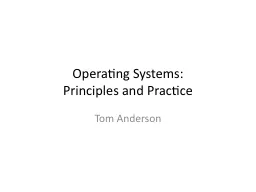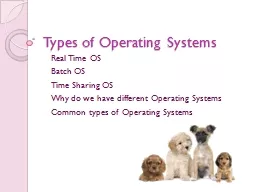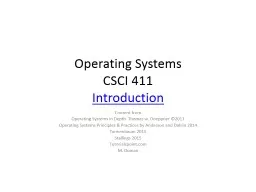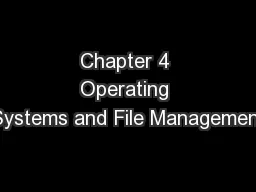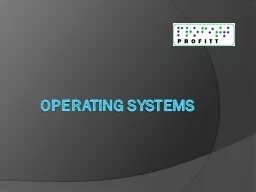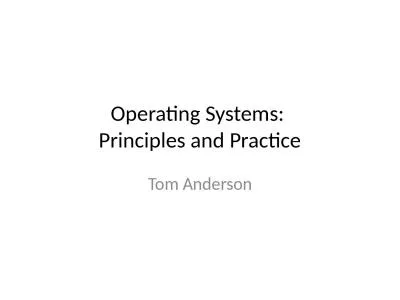PPT-1 CMSC421: Principles of Operating Systems
Author : faustina-dinatale | Published Date : 2015-12-06
Nilanjan Banerjee Principles of Operating Systems Acknowledgments Some of the slides are adapted from Prof Mark Corner and Prof Emery Bergers OS course at Umass
Presentation Embed Code
Download Presentation
Download Presentation The PPT/PDF document "1 CMSC421: Principles of Operating Syste..." is the property of its rightful owner. Permission is granted to download and print the materials on this website for personal, non-commercial use only, and to display it on your personal computer provided you do not modify the materials and that you retain all copyright notices contained in the materials. By downloading content from our website, you accept the terms of this agreement.
1 CMSC421: Principles of Operating Systems: Transcript
Download Rules Of Document
"1 CMSC421: Principles of Operating Systems"The content belongs to its owner. You may download and print it for personal use, without modification, and keep all copyright notices. By downloading, you agree to these terms.
Related Documents


